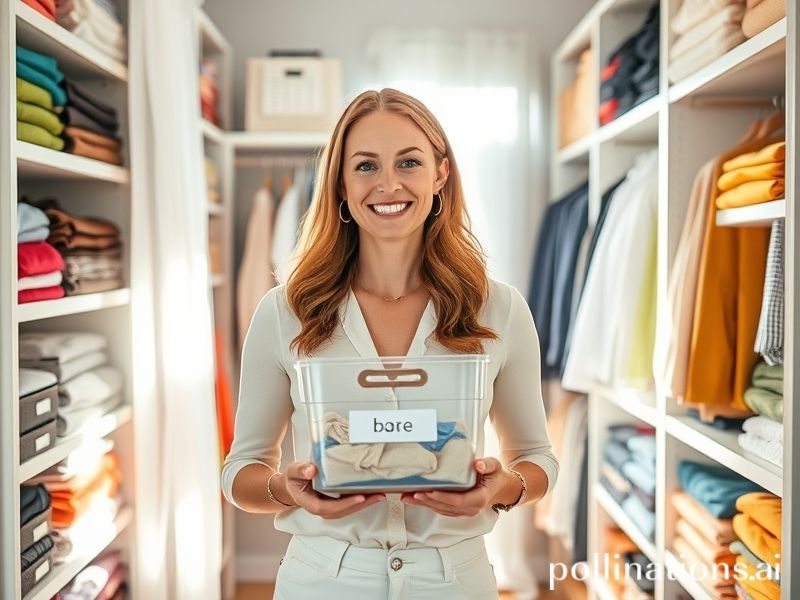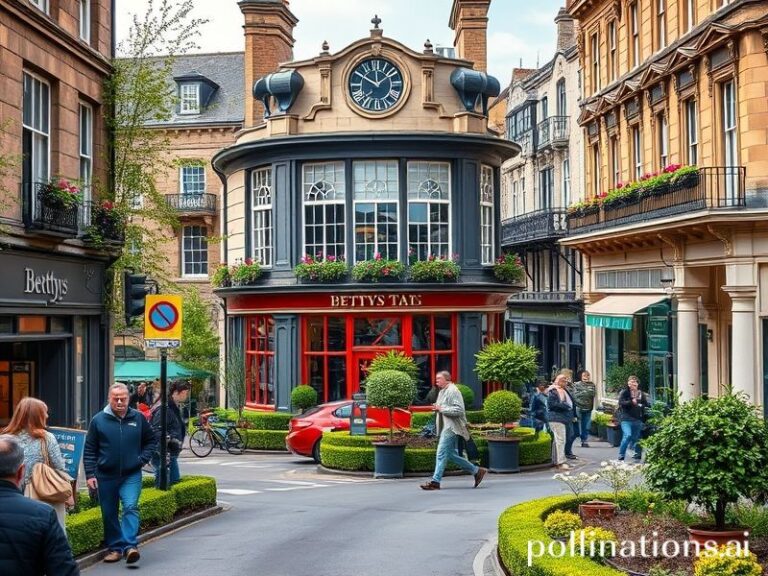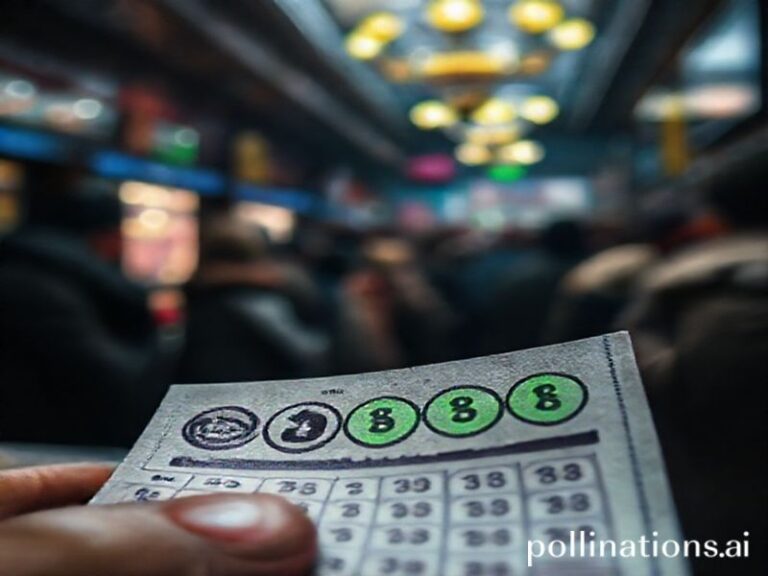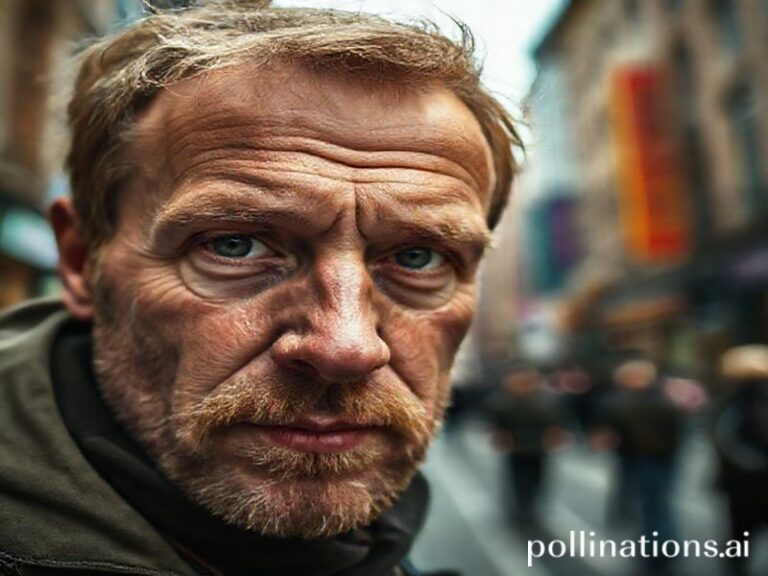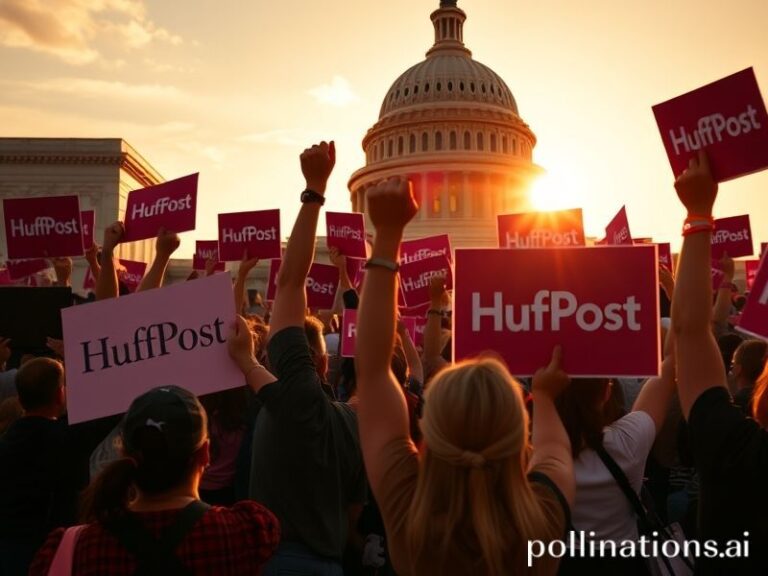From Nashville to Nagasaki: How Clea Shearer’s Rainbow Bins Conquered the Planet
**The Global Empire of Sparkly Drawers: How Clea Shearer Tidied Her Way Into the Geopolitical Conversation**
*By Our Correspondent Who Keeps His Socks Rolled in Rebellion*
PARIS—In a world where nuclear treaties collapse via tweet and central banks print money the way teenagers print TikToks, it takes a special kind of cultural juggernaut to make the front page of *Le Monde* without starting an actual war. Enter Clea Shearer—Nashville-born, Instagram-polished, and now, improbably, a soft-power asset discussed in the same breath as K-pop and the NFL. Alongside business-partner-in-misery Joanna Teplin, Shearer has franchised the ancient art of putting stuff in boxes with the ruthless efficiency of a 19th-century imperial power. Only this time the gunboats are pastel and the opium is scented drawer-liner.
The numbers, like most things on the internet, are either hilarious or terrifying, depending on how much faith you still have in civilization. Netflix claims *Get Organized with The Home Edit* has been streamed in 194 countries—one more than the number that acknowledge the existence of Taiwan, which should tell you something about the hierarchy of soft power. From Jakarta high-rises where domestic workers now alphabetize spice racks in two languages, to Berlin *WG* flats where roommates wage passive-aggressive warfare over ROYGBIV-arranged tea towels, Shearer’s gospel of color-coded containment has become a universal second language. Esperanto died; acrylic bins survived.
What makes this remarkable—aside from the obvious absurdity that a woman from Tennessee has convinced Slovenian dentists to label their dental floss—is the timing. The planet is literally on fire, supply chains buckle like cheap IKEA shelving, and yet millions voluntarily spend Friday nights watching strangers decant cereal into transparent cylinders. Marx called religion the opiate of the masses; had he witnessed the dopamine spike of a perfectly symmetrical pantry, he might’ve upgraded the metaphor to fentanyl-scented drawer sachets.
Diplomats, those professional liars paid to care about such things, whisper that the show functions as accidental propaganda for American exceptionalism. Where else but the United States could you monetize the existential dread of abundance? European viewers, saddled with 19-square-meter apartments and inheritance laws dating to Charlemagne, watch agog as suburban Americans possess so much stuff they need a second mortgage just to store it. It’s the pornography of square footage, the voyeuristic thrill of watching someone else have so many throw pillows they require a spreadsheet.
Meanwhile, the global south absorbs the series with the detached amusement reserved for aliens who haven’t yet discovered multi-generational housing. In Mumbai, where entire families fold themselves into 200 square feet, the concept of a “craft closet” is as fantastical as a unicorn that pays rent. Yet even there, Instagram accounts pop up replicating Shearer’s rainbow gradients using recycled medication boxes—DIB (Doing It Brics-style). Colonialism 2.0 comes with a chalkboard label and a 20-percent influencer discount.
Environmentalists, those professional fun-sponges, warn that the trend fuels a tsunami of plastic organizers shipped across oceans on bunker-fuel barges. Each viral “pantry porn” post, they moan, indirectly cough up more carbon than a Mongolian coal stove. Shearer’s response has been to launch a “sustainable” line—recycled acrylic, because nothing says planetary salvation like turning last year’s ocean trash into this year’s quinoa canister. Critics call it green-washing; fans call it Tuesday. Both are probably right.
Still, one has to admire the elegant nihilism of it all. While the World Bank debates debt restructuring, Shearer teaches us to restructure our snack drawers. It’s easier to alphabetize your spices than your government, simpler to label a bin than a failed state. In that sense, the Home Edit empire isn’t just organizing homes; it’s organizing the chaos of late capitalism into neat, stackable denial. The abyss stares back, but now it’s color-coded and corralled in an easily wipeable container.
So toast the new world order: 195 countries, 196 if you count the sovereign nation of Influencerstan, where citizenship requires a label-maker and the national anthem is the sound of a lid snapping shut on human anxiety. Clea Shearer doesn’t just edit homes; she edits reality—one overpriced bin at a time. And should the nukes ever fly, rest assured the aftermath will be sorted into “Keep,” “Donate,” and “Apocalypse” piles. Neatly, of course.

